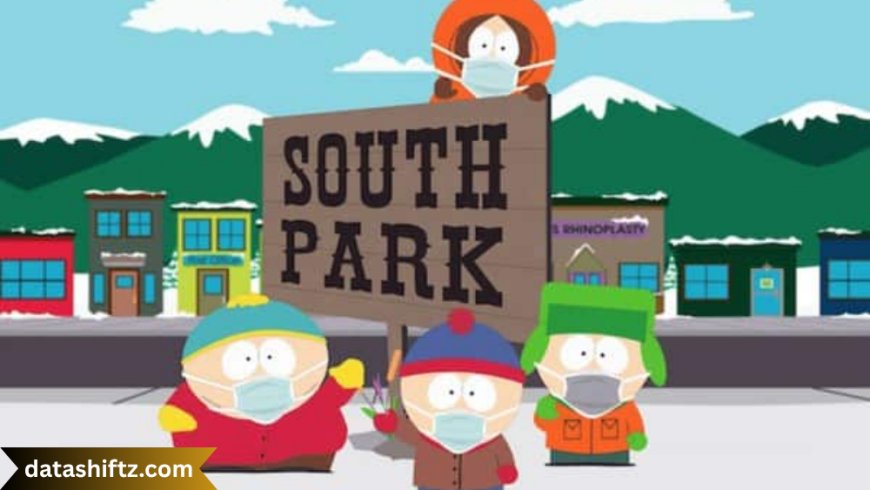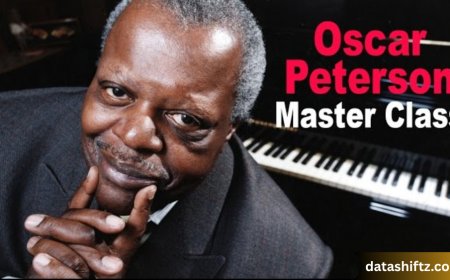South Park: The Animated Series That Redefined Satire

Introduction
In the ever-evolving world of television, only a few shows manage to carve out a legacy that spans decades. South Park is one such cultural giant. Created by Trey Parker and Matt Stone, this animated sitcom debuted in 1997 and continues to influence pop culture with its satirical, irreverent humor and its uncanny ability to remain both topical and entertaining.
What began as a crudely animated pilot evolved into one of the most celebrated—and controversial—shows on television. With its fearless commentary on social, political, and cultural issues, South Park has become more than just a cartoon. It is a voice, a mirror, and at times, a hammer smashing societal norms.
The Origins of South Park
The Birth of a Bold Vision
South Park was born out of a short film titled The Spirit of Christmas, an animated holiday greeting made by Parker and Stone in 1992. The short gained viral traction (pre-internet virality, via VHS tapes) and caught the attention of Comedy Central executives. By 1997, South Park had officially aired its first episode, “Cartman Gets an Anal Probe.”
The Signature Style
The show immediately stood out due to its cutout animation style, potty humor, and shock-value content. While initially dismissed by some as crude and immature, the series proved its intelligence through razor-sharp social commentary.
Characters That Define the Show
At the heart of South Park are four elementary school boys living in the fictional town of South Park, Colorado. Their adventures—and misadventures—form the backbone of the show’s storytelling.
| Character | Traits | Notable Quotes |
|---|---|---|
| Stan Marsh | Level-headed, moral center | "Dude, this is pretty messed up." |
| Kyle Broflovski | Rational, Jewish identity often explored | "You bastards!" |
| Eric Cartman | Manipulative, bigoted, selfish | "Respect my authoritah!" |
| Kenny McCormick | Poor, dies repeatedly (early seasons) | Muffled gibberish |
Themes and Cultural Commentary
Fearless Satire
South Park doesn’t pull punches. Its creators have tackled nearly every controversial topic imaginable—from global politics to mental health, gun control, religious beliefs, and even the media industry.
Real-World Impact
Despite its satirical nature, the show has had tangible effects:
-
Episodes like “Trapped in the Closet” critiqued Scientology so effectively that it spurred public debate.
-
The episode “It Hits the Fan” challenged censorship by uttering the word “s**t” over 160 times—without FCC backlash.
-
“Band in China” criticized American corporations pandering to Chinese censorship, drawing international attention.
Evolution of South Park Over the Years
Animation and Production
While early seasons used paper cut-out animation, modern episodes are created using sophisticated software like Maya. However, the style remains intentionally “low-fi” to preserve its unique aesthetic.
South Park's Evolution by Era
| Era | Key Changes | Notable Episodes |
|---|---|---|
| 1997–2001 | Crude animation, shock humor, foundational satire | “Cartman Gets an Anal Probe”, “Mr. Hankey” |
| 2002–2010 | Narrative maturity, political themes emerge | “Trapped in the Closet”, “Make Love, Not Warcraft” |
| 2011–2015 | Serial storytelling begins | Season 18–20 arcs |
| 2016–Present | Streaming specials, longer arcs, real-time commentary | “Pandemic Special”, “Post COVID” films |
Most Controversial Episodes
South Park has never been afraid of controversy. Some episodes, however, pushed the boundaries further than others.
List of Most Controversial Episodes
-
Trapped in the Closet – Critiqued Scientology and Tom Cruise.
-
200/201 – Attempted to depict Muhammad; was censored.
-
It Hits the Fan – Aired uncensored vulgar language to test boundaries.
-
Cartoon Wars – Tackled the Danish cartoon controversy.
-
With Apologies to Jesse Jackson – Addressed racial slurs.
-
Band in China – Criticized Hollywood’s compromises with the Chinese government.
-
Douche and Turd – Mocked U.S. election choices.
-
A Million Little Fibers – Parodied Oprah and literary fraud.
-
All About Mormons – Satirized Mormon beliefs.
-
The Pandemic Special – Targeted misinformation and COVID handling.
Influence on Pop Culture and Media
South Park has shaped the adult animation landscape, influencing shows like:
-
Family Guy
-
American Dad
-
Rick and Morty
-
Bojack Horseman
Additionally, its characters—especially Cartman—have become pop-culture icons. Phrases like “Screw you guys, I'm going home” are instantly recognizable.
South Park’s Business Empire
Beyond television, South Park is a commercial empire:
Franchise Highlights
-
Feature Film: South Park: Bigger, Longer & Uncut (1999)
-
Video Games: “The Stick of Truth” and “The Fractured But Whole”
-
Merchandise: Toys, posters, apparel
-
Streaming Deals: Multi-million-dollar agreement with Paramount+ and HBO Max
-
Musicals & Documentaries: Including Parker & Stone’s The Book of Mormon
In 2021, creators signed a $900 million deal with ViacomCBS to create 14 films and extend the show through at least Season 30.
Production Genius – Fast Turnaround Model
The creators famously produce each episode in just six days. This lightning-fast production cycle allows them to stay current with major news events—sometimes airing episodes reacting to events just days earlier.
Benefits of Fast Production
-
Relevance: Keeps show topical and engaging.
-
Flexibility: Allows for changes based on real-time reception.
-
Uniqueness: No other scripted show can match this model.
Criticism and Accolades
South Park has been:
-
Criticized for:
-
Promoting nihilism
-
Normalizing offensive speech
-
Censorship battles
-
-
Praised for:
-
Defending free speech
-
Raising difficult moral questions
-
Staying bold in an age of cancel culture
-
Awards and Recognition
-
5 Primetime Emmy Awards
-
Peabody Award
-
Listed among Time Magazine’s “100 Best TV Shows of All Time”
What’s Next for South Park?
The future is bright for this long-running franchise:
Upcoming Plans
-
New seasons and more specials
-
Exclusive streaming content on Paramount+
-
Expansion into new media (AI, metaverse possibilities)
The show's creators continue to evolve their craft, promising fresh stories, cutting-edge satire, and unfiltered comedy.
Conclusion
Few shows have ever balanced controversy and creativity the way South Park has. It's crude yet brilliant, juvenile yet intellectual. Its legacy lies in its commitment to mocking everything—from the sacred to the absurd—with an honesty that few dare to attempt.
With over 25 years of storytelling under its belt, South Park remains not only a cultural staple but a fearless reflection of the world around us. Whether you love it, hate it, or love to hate it—there’s no denying its impact.






























